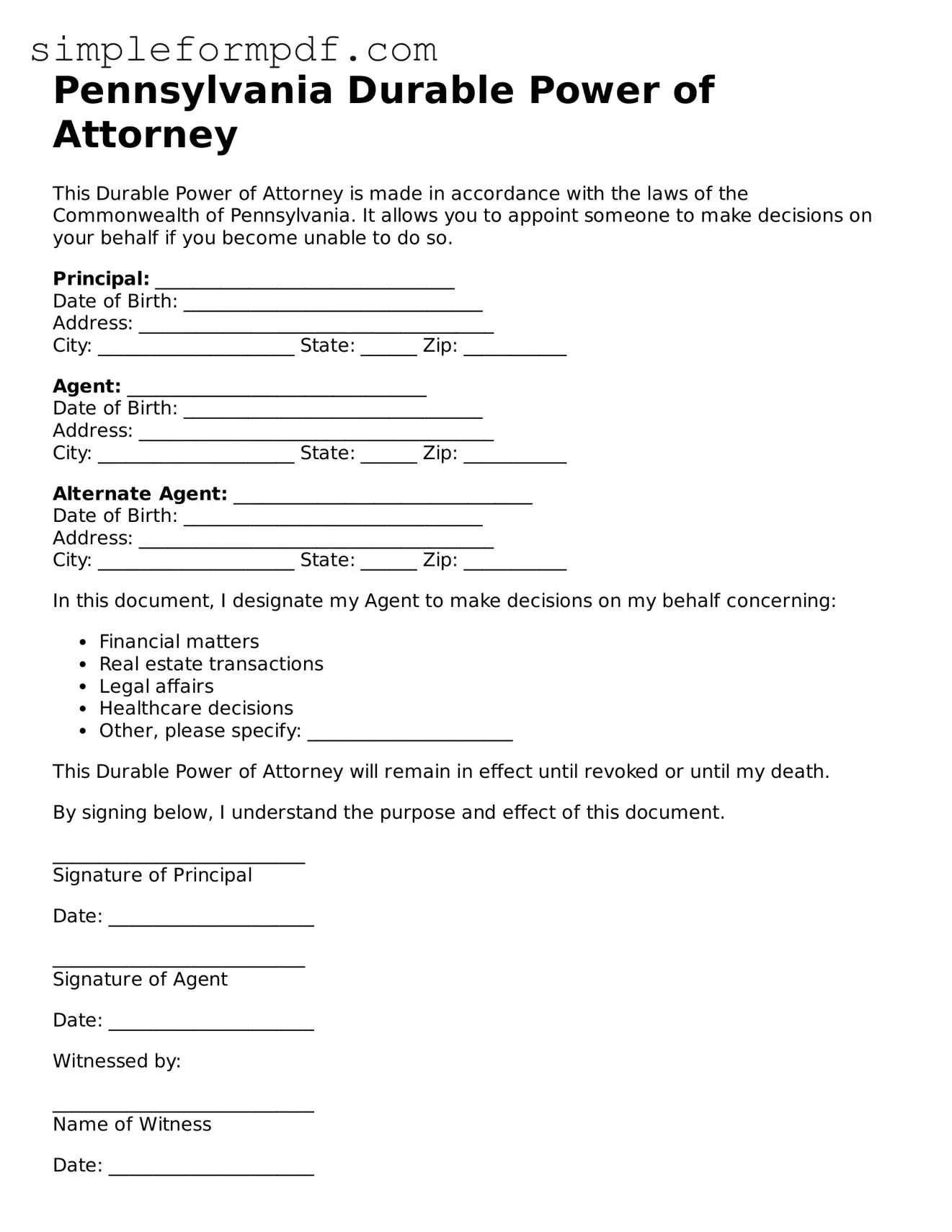Free Durable Power of Attorney Form for the State of Pennsylvania
A Durable Power of Attorney in Pennsylvania is a legal document that allows an individual, known as the principal, to designate another person, referred to as the agent, to make financial and legal decisions on their behalf. This form remains effective even if the principal becomes incapacitated, ensuring that their affairs are managed according to their wishes. To take control of your future, consider filling out the Durable Power of Attorney form by clicking the button below.
Launch Editor

Free Durable Power of Attorney Form for the State of Pennsylvania
Launch Editor
Need instant form completion?
Finish Durable Power of Attorney online in just a few minutes.
Launch Editor
or
Download PDF
